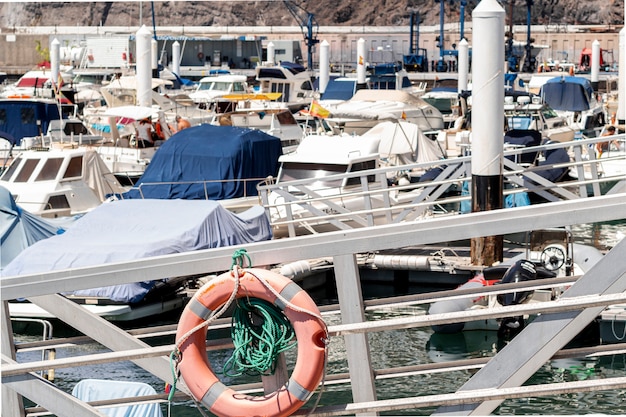What is a Marine Mortgage?
A Concise Response
A marine mortgage is a legal agreement that allows individuals or businesses to secure a loan against a vessel, typically a boat or yacht. It functions similarly to a traditional mortgage on land, providing lenders with a form of security and giving borrowers the ability to finance the purchase of their desired watercraft. Marine mortgages are often used by both private individuals and commercial entities involved in the maritime industry.
Elaborating on the Topic
Marine mortgages have become an essential aspect of the boating and yachting industry, enabling individuals to realize their dreams of owning a vessel without requiring full upfront payment. These mortgages are typically offered by specialized lenders who understand the unique aspects and risks associated with financing boats and yachts.
Securing a Marine Mortgage
Securing a marine mortgage involves a process similar to obtaining a traditional land-based mortgage. The borrower must approach a lender, usually a marine finance specialist, with details about the vessel they wish to purchase, including its make, model, age, and value. The lender will then evaluate the borrower’s creditworthiness, taking into account factors such as income, credit history, and existing debt.
Once approved, the borrower and lender enter into a legally binding agreement known as a marine mortgage. This agreement establishes the terms and conditions of the loan, including the interest rate, repayment period, and consequences of default. To secure the loan, the lender will typically take a lien or charge against the vessel, giving them the legal right to seize and sell the boat in the event of non-payment.
Benefits and Risks of Marine Mortgages
Like any financial product, marine mortgages come with both benefits and risks. One significant advantage is that they enable borrowers to spread the cost of purchasing a boat or yacht over an extended period, making ownership more affordable. This can be particularly beneficial for individuals or businesses that do not have the necessary funds to buy a vessel outright.
Another advantage of marine mortgages is that interest rates are often competitive compared to other forms of borrowing. Lenders recognize that boats and yachts are valuable assets, which helps reduce the risk associated with the loan. However, it’s important to note that interest rates may vary depending on factors such as the borrower’s creditworthiness, the age of the vessel, and the overall loan amount.
On the other hand, marine mortgages also come with risks, both for the borrower and the lender. For borrowers, the primary risk is the potential loss of the vessel in case of default. If payments are not made as agreed, the lender has the right to repossess the boat and sell it to recover their funds. It is essential for borrowers to carefully consider their financial situation and ensure they can comfortably meet the monthly repayments before entering into a marine mortgage agreement.
For lenders, the main risk lies in the value and condition of the vessel being financed. Boats and yachts are subject to depreciation, and if the borrower defaults, the lender may find it challenging to recoup the full loan amount through the sale of the vessel. Consequently, lenders often conduct thorough evaluations of the boat’s value and require insurance coverage to protect their interests.
The Legal Aspect of Marine Mortgages
Marine mortgages are subject to various legal requirements, which differ from country to country. In many jurisdictions, the process of registering a marine mortgage is necessary to establish the lender’s priority position over other creditors in the event of a default. Registering a marine mortgage typically involves recording the details of the loan and the vessel with the appropriate maritime authority.
In some cases, lenders may require additional security beyond the vessel itself. This can include personal guarantees, cash deposits, or other assets as collateral. The terms and conditions of marine mortgages are typically outlined in a loan agreement, which should be carefully reviewed by both parties to ensure full understanding and compliance.
Conclusion
A marine mortgage is a valuable financial tool that allows individuals and businesses to fulfill their dreams of boat or yacht ownership. By spreading the cost over time, borrowers can make ownership more accessible, while lenders benefit from the security of the vessel. However, it is crucial for both borrowers and lenders to carefully consider the risks and legal requirements associated with marine mortgages to protect their interests.


